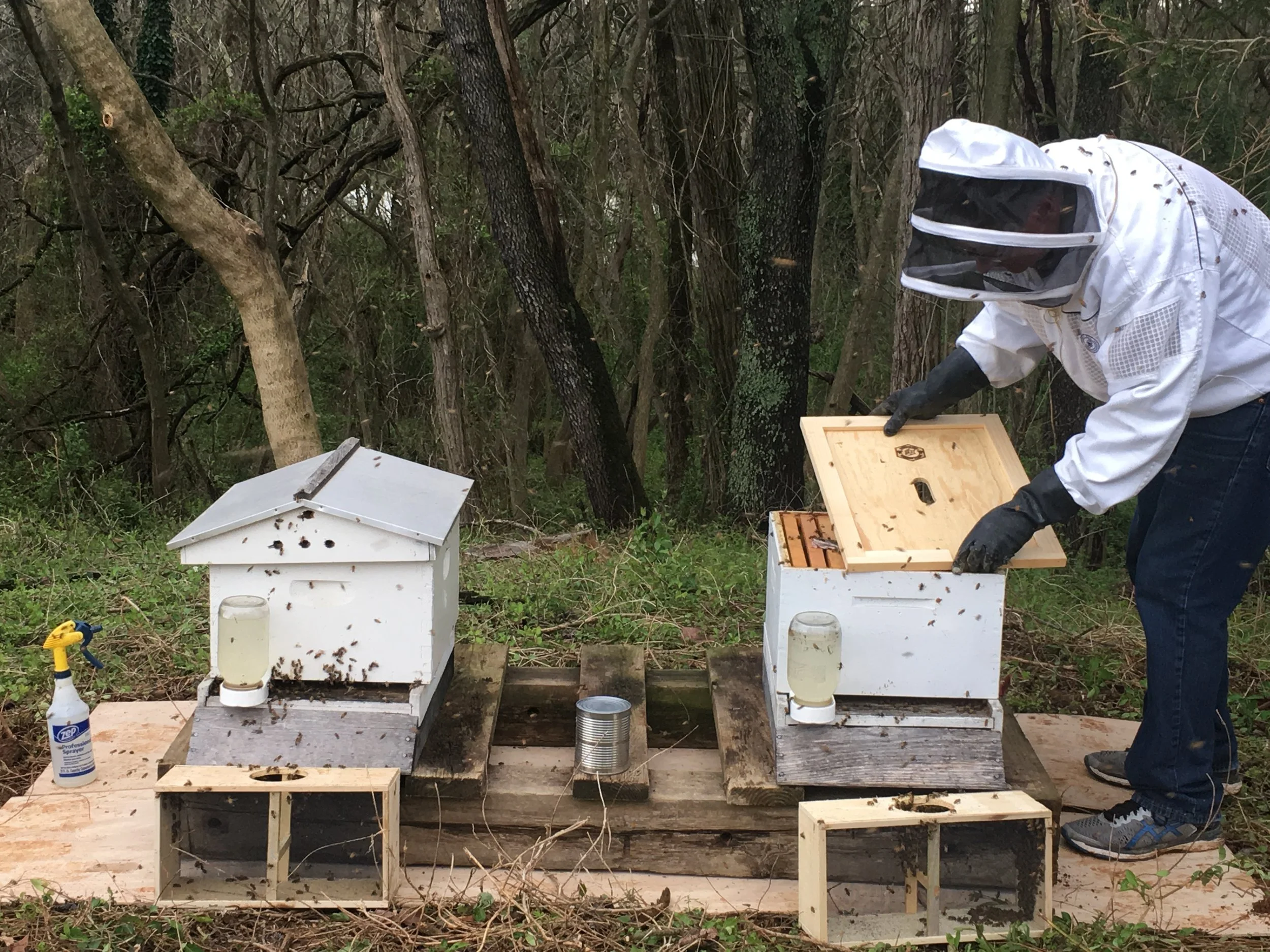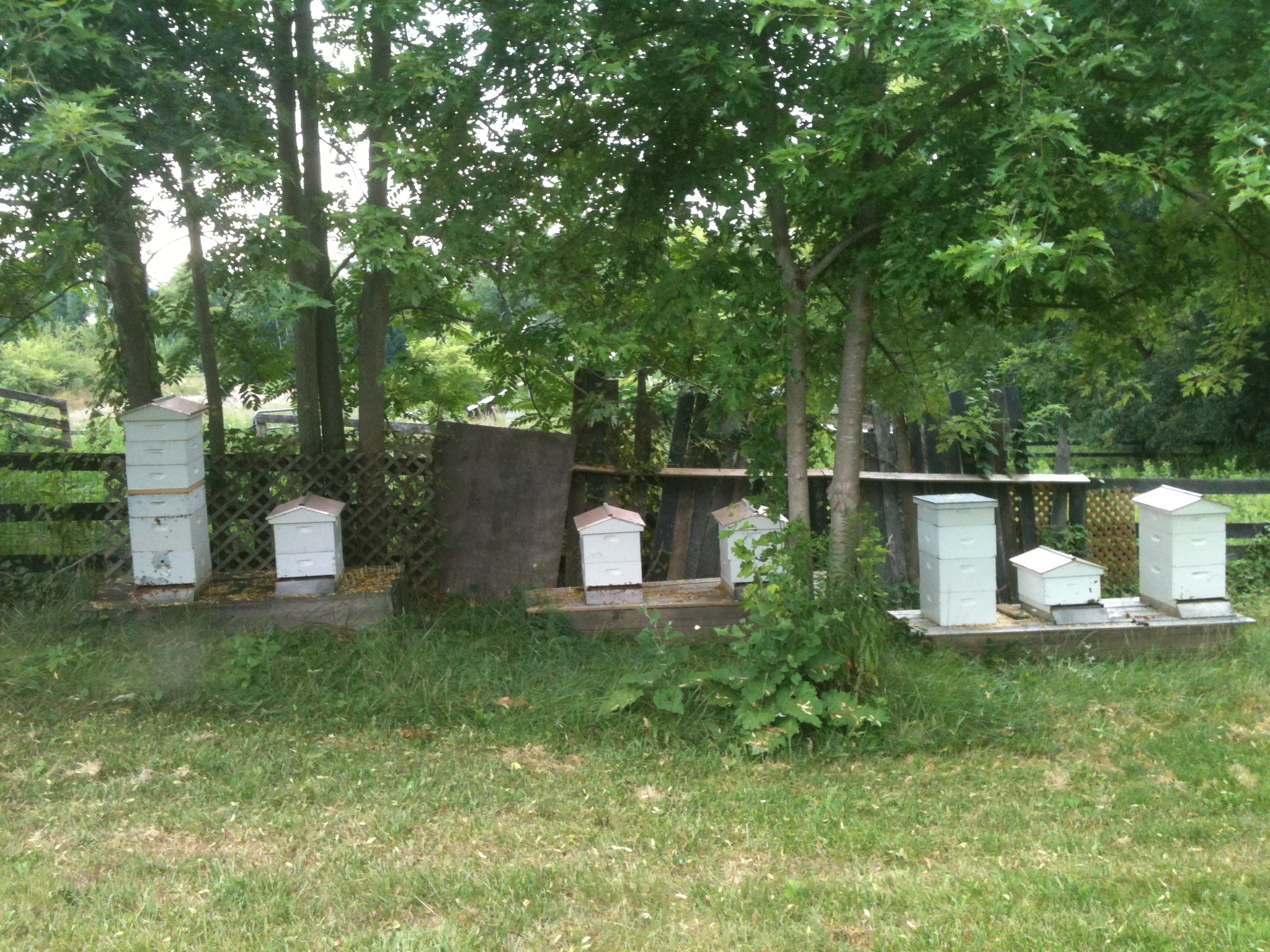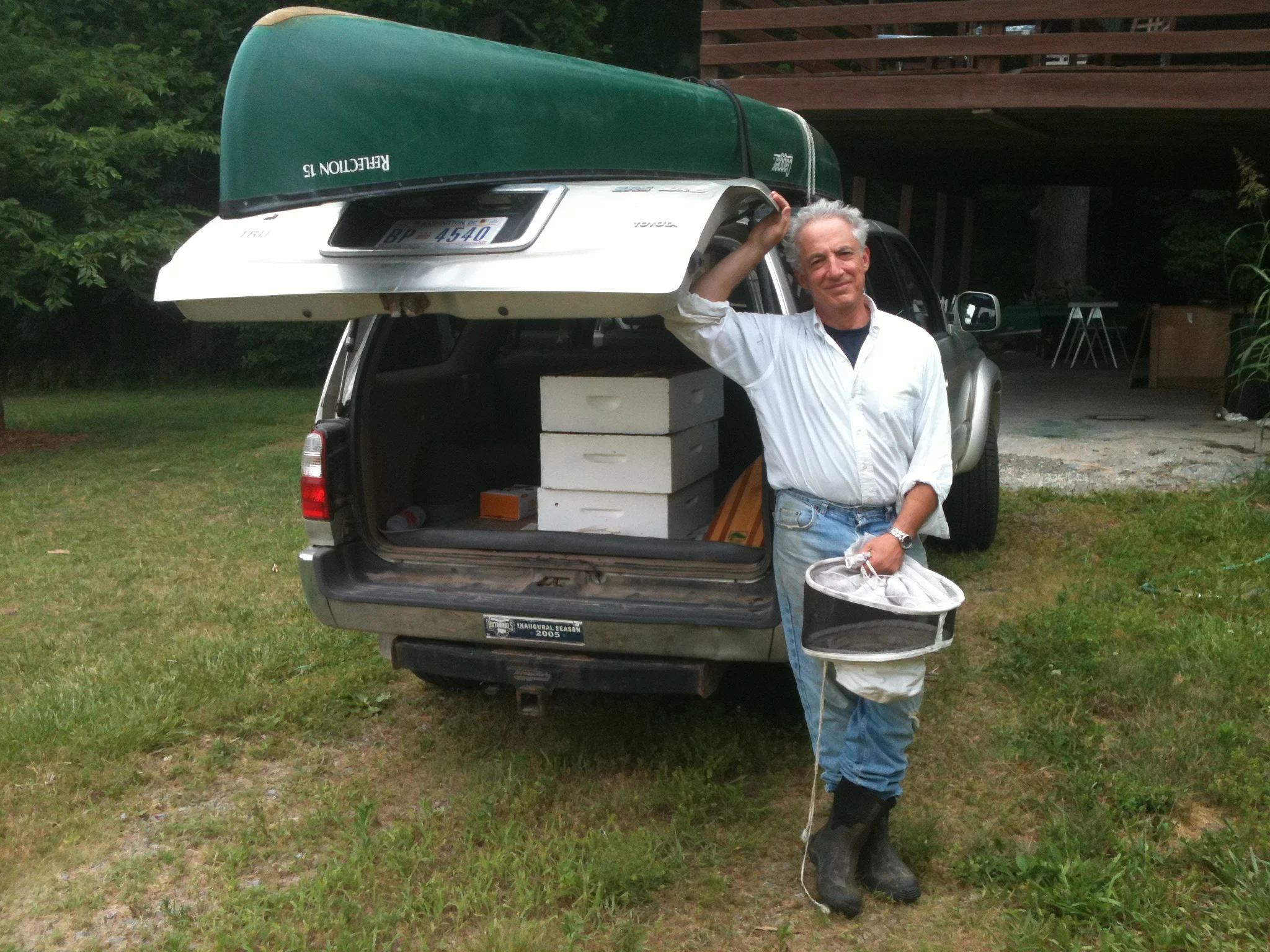About us
We first made Harry’s Honey in 1974 with two colonies in Chittenden, Vermont, a small mountain town north of Rutland. We expanded to four colonies and moved south to Middletown Springs. Harry’s Honey went on sale at the Rutland Farmer’s Market in 1976.
Back then keeping bees was a much simpler proposition: in Vermont’s intense and concentrated four-month growing season, the bees did their best to store honey for the winter. If they made extra, we took the frames and spun out the honey in a small, hand-cranked extractor. Fifty pounds a hive was a banner year. There were few pests, fewer pesticides, no colony collapse.
Harry’s Honey took a few decades off while we lived in the city, but as soon as we got a place in Virginia’s Shenandoah Valley, we looked for the perfect bee yard and started up the apiary. Our friend Rick, who inherited our hives when we left Vermont, brought down a few of his colonies – so the genetic line could even be connected.
The honeybees have done very well by us in Clarke County. Granted, we have to battle pests and pesticides we never dealt with in the Green Mountains. We lose colonies every winter, but we learn, we adapt, and we work on keeping our colonies strong. If we’re lucky, and the nectar flows, we can make some tasty honey, pretty much the same as back in Vermont – only now our extractor has a little motor, so we save on elbow grease.
Harry’s Honey now comes from our bee yard located at Holy Cross Abbey, a Trappist monastery on Castleman Road, Berryville, VA. Our bees forage through fields along a stretch of the Shenandoah River at the base of the Appalachian Trail atop the Blue Ridge. In the early spring they collect nectar from black locust trees, maple, basswood and tulip poplars, move on to dandelions, clover and autumn olive in the early summer, then wildflowers like thistle, echinacia, wineberry, wild raspberry and goldenrod through the warm seasons.
We harvest our honey in May and July, uncap frames by hand and spin the honey out in an extractor. From the extractor our honey goes through a colander and directly into jars — unprocessed, unfiltered and unheated. We leave autumn honey in the hives to sustain our colonies through the winter.
We hope the complex flavors delight and nourish.
In humility and gratitude to the bees.
Harry and the Bees












